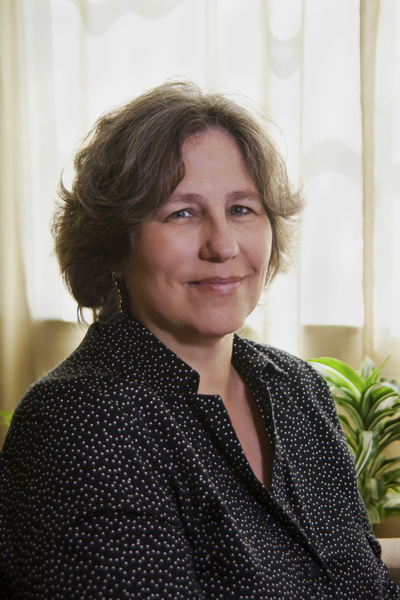Preparing for a death
Monday, 12 November, 2018

Inevitably, healthcare workers will be faced with the imminent death of a patient. Author and palliative nurse Sallie Tisdale* helps carers navigate this emotional journey.
One of the roles a good nurse fills is that of witness. When we care for people who are dying, part of our nursing will be to look. We look, and we explain: “Yes, this is normal. This is what happens. This is how we die. This is what it looks like.” But we can do this only if we allow ourselves to see.
It’s not that easy to see death clearly. We are filled with contradictions — never entirely believing in our own deaths, struggling to accept the deaths of others. We push and pull patients in various ways.
Most people know when they are dying. They don’t need to be protected from the knowledge. But people who are dying will try out ways to respond to what is happening to��them.
Denial
A person may say things that sound ridiculously optimistic. “I’ll be playing tennis by Christmas.” She may just want to feel better for a time. Families can cultivate denial, and to do so is common in many cultures. We shouldn’t insist on taking it away. Part of good nursing care is allowing people to find their way in their own time. This includes coming to terms with the truth of their own death.
Everyone involved may join in the denial. As the writer Cory Taylor said in her memoir of dying from melanoma, “In hospitals we don’t talk about death; we talk about treatment.” Research shows that doctors generally overestimated survival of cancer patients, and that health professionals are overly optimistic about medical treatment in general. We’re all afraid to die, and it shows in our care sometimes.
Doctors and nurses have all kinds of human reasons to avoid the truth. It’s hard to lose a patient you’ve come to like; it’s hard to fail at a cure.
I work in a palliative care program. Most of our clients die after a slow decline, telegraphed for weeks or months. In the last few weeks of life, the nurse often visits every day; she or he teaches the caregivers and the family what to expect, what symptoms mean, how to use medications, how to do everything possible to keep a person comfortable and how to know when death is imminent. And yet that same nurse may be unable to chart that a patient has died. He has passed away, or expired. Sometimes the nurse cannot bring herself to write the bare, undeniable word.
Selfishness
The hardest part of a death is the simple loss of a person. But a close second is the need to shove your own fears and desires to the side. Sherwin Nuland noted that at such time “everybody becomes enormously selfish”, and he emphatically includes doctors and nurses along with family.
We may not even recognise that selfishness is driving our choices. We work within an inevitable conflict of interests — you are dying and I want you to live. Doctors may not know they are doing this; when they offer yet another experimental drug, they may genuinely believe they know what’s best for the patient. But best: best is subjective. Best is your point of view. Best is what you want, and it may not be best for the dying person.
The nurse is acting on behalf of the person in the bed. What that person wants is what counts. It may be quite different from what you would choose for yourself in the same position. You want the person to live. You want the person to die your version of a good death, or to live another week or try another course of treatment. But it’s not about what you want.
Above all, if you are talking with a person who is dying, be aware of what you want and what you think the dying person should do and should feel, and keep it to yourself.
Instead, explain how you will give support, no matter what happens. Explain that, whatever the shape of her last moments, the dying person will be allowed to make what choices are possible. (These choices may be few, and they may be based on plans made months or years before.) The person is always spoken to at the bedside, not about. Symptoms are treated, but only in the way the dying person wants. The person in bed leads the way. No-one — family, nurse or doctor — imposes their beliefs.
Despair
A person may say something that sounds completely hopeless: “There’s no point. It’s no good. This won’t work.” He may be trying out this possibility, seeing how it feels. It’s not very helpful to say, “You’re going to be fine!” when you know better.
Towards the end of life, many aspects of medical and nursing care become futile. Other treatments may simply be unnecessary or intrusive — drawing blood for lab work, certain medications (are you really worried about the cholesterol level at this point?), even checking blood pressure, can be stopped. But sometimes we describe this as “withdrawing” treatment, or “doing nothing more”.
One of the worst sentences a patient can hear is “There’s nothing more to be done.” Not only does this undermine a person’s fragile composure, it’s not true. There is so much to be done. At the end of life, we will be busy offering emotional and physical support, managing symptoms, protecting privacy and providing the many small actions for family and patients that allow for a comfortable death.
Acceptance
Experience helps; there’s no way around it. If you want to be more comfortable with death itself, with your death and the death of others, spend time near it. Sit with the dying, and pay attention.
Acceptance is found only by wholly inhabiting our own denial of death. Contemplating death is really contemplating resistance, for a long time. How do we get ready to die? We start with not being ready. We start with the fact that we are afraid. A long, lonesome examination of our fear. We start by admitting that we are all future corpses pretending we don’t know.

��
��
��
��
��
��
��
��
��
��
��
��
��
��
Inaugural ���ϳԹ�Ⱥ�� + Healthcare Excellence Awards — nominations open
With 15 individual awards across eight categories and two special awards, nominations are now...
In Conversation with Ahpra CEO Justin Untersteiner
Three months into the role, already Justin Untersteiner has grand plans for Ahpra — but...
In Conversation with Australia's Surgeon General, Rear Admiral Sonya Bennett
���ϳԹ�Ⱥ�� + Healthcare speaks with Rear Admiral Sonya Bennett, Surgeon...





